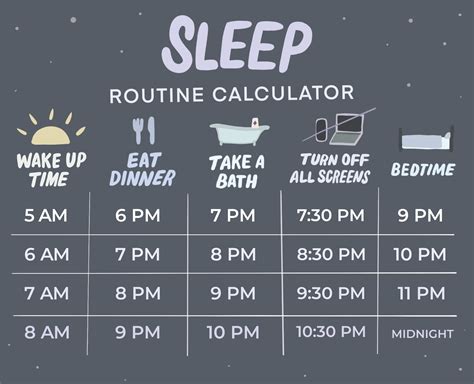Daily routine to boost deep sleep?

Understanding the Power of Deep Sleep
Deep sleep, or slow-wave sleep, is a crucial stage of our sleep cycle where the body repairs itself, consolidates memories, and processes emotions. It’s essential for physical restoration, cognitive function, and immune system strength. While many focus on total sleep duration, the quality and proportion of deep sleep are equally, if not more, vital for truly waking up refreshed and energized. Cultivating a daily routine specifically designed to promote this restorative phase can profoundly impact your overall health and daily performance.

Morning Rituals to Set Your Circadian Rhythm
The foundation of good deep sleep actually begins the moment you wake up. Establishing consistent morning habits helps to synchronize your internal body clock, or circadian rhythm, which plays a significant role in regulating sleep-wake cycles.
- Consistent Wake-Up Time: Try to wake up at the same time every day, even on weekends. This regularity helps train your body’s internal clock.
- Morning Light Exposure: Step outside or sit by a window to get natural light within 30 minutes of waking. This signals to your brain that the day has begun, suppressing melatonin production and promoting alertness.
- Hydration and Nutrition: Start your day with a glass of water and a nutritious breakfast. This kick-starts your metabolism and provides sustained energy.
Daytime Habits for Optimal Sleep Preparation
What you do throughout your day significantly influences how well you sleep at night. Mindful daytime choices can pave the way for deeper, more restorative sleep.
- Strategic Exercise: Engage in moderate to vigorous physical activity most days of the week. However, aim to finish intense workouts at least 3-4 hours before bedtime, as exercise can be stimulating. Morning or early afternoon exercise is ideal.
- Mindful Caffeine Intake: Limit caffeine consumption, especially in the afternoon and evening. Caffeine has a long half-life and can interfere with deep sleep if consumed too close to bedtime.
- Stay Hydrated (Early): Drink plenty of water throughout the day, but taper off your fluid intake in the late evening to avoid waking up for bathroom breaks.

Evening Wind-Down: Preparing for Rest
The hours leading up to bedtime are critical for signaling to your body that it’s time to transition from activity to rest. This “wind-down” period helps calm your nervous system and encourages melatonin production.
- Dim the Lights: As evening approaches, reduce exposure to bright lights, especially blue light from screens (phones, tablets, computers, TVs). Blue light can suppress melatonin, the hormone that makes you feel sleepy. Consider using blue-light filtering glasses or activating night mode on devices.
- Avoid Heavy Meals and Alcohol: Try to finish your last large meal at least 2-3 hours before bed. Eating too close to bedtime can lead to indigestion. While alcohol may initially make you feel drowsy, it disrupts sleep architecture, particularly deep sleep later in the night.
- Relaxation Techniques: Engage in calming activities such as reading a physical book, listening to soothing music, taking a warm bath, or practicing gentle stretching or meditation.

Optimizing Your Sleep Environment and Bedtime Routine
Your bedroom should be a sanctuary for sleep, free from distractions and conducive to deep rest.
- Cool, Dark, and Quiet: Ensure your bedroom is cool (ideally between 60-67°F or 15-19°C), dark (use blackout curtains if necessary), and quiet (consider earplugs or a white noise machine).
- Consistent Bedtime: Just as with waking up, going to bed around the same time each night reinforces your circadian rhythm.
- Pre-Sleep Ritual: Establish a consistent, relaxing ritual in the 30-60 minutes before bed. This could include a warm bath, reading, or light stretching. The predictability signals to your body that sleep is approaching.

Conclusion: Consistency is Key
Boosting your deep sleep isn’t about one magic bullet; it’s about a holistic approach that integrates healthy habits throughout your entire day. By consistently applying these morning, daytime, and evening strategies, you can optimize your body’s natural sleep processes, increase the proportion of restorative deep sleep, and wake up feeling truly revitalized. Prioritize these daily routines, and watch your sleep quality — and overall health — transform.










